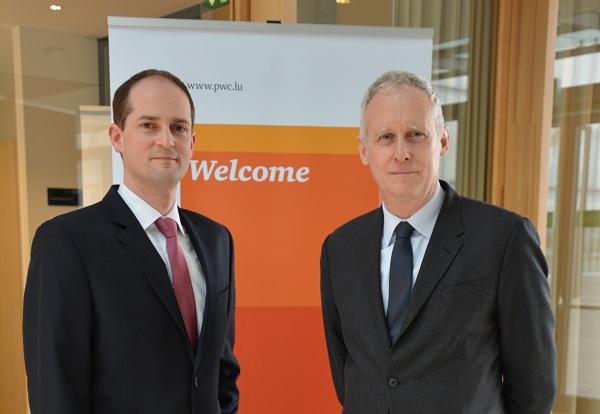
On Wednesday, PwC Luxembourg released the Luxembourg Report component of the Global Economic Crime Survey 2016, revealing that Luxembourg organisations are increasingly becoming victims of economic crimes.
Michael Weis, Partner and Financial Crime and Forensic Services Leader, accompanied by Daniel Thelesklaf, President of MONEYVAL (Council of Europe) and Director of the Financial Intelligence Unit of Liechtenstein, revealed the most common types of economic crimes and major risk areas in connection with a complete presentation of results concerning Luxembourg.
According to the PwC report, 42% of respondents from Luxembourg organisations (compared to 36% globally) revealed that they were victims of economic crimes in the last two years, yet 24% of respondents did not assess the risk of fraud. The higher rate for Luxembourg is explained partly by the financial sector (particularly exposed) active in the Grand Duchy (62% of respondents). "However, the global results show that other sectors are also victims of economic crime, there is little reason to believe that companies in Luxembourg would be less exposed" indicated Michael Weis.
An economic crime induces a significant financial impact, with 22% of global respondents having reported, in the last 24 months, suffered financial losses of between 100,000 and 1 million dollars (14% that amount exceeds one million dollars).
Cybercrime and money laundering in the top 5 of economic crime in Luxembourg
According to the study, cybercrime (57%) and money laundering (39%) are the two threats that will impact most the Luxembourg market in the future. If money laundering is the subject of special attention, including from a regulatory point of view that is very thorough in Luxembourg, cybercrime risk awareness appears, in turn, less blatant. The risks to which organisations should be prepared in the future is complemented by intellectual espionage (27%), asset misappropriation (23%) and insider trading (20%). In the next two years, six G20 countries believe that cybercrime will represent the biggest threat to economic crime.
The report also revealed that 46% of economic crimes come from with organisations. "Controls should be powerful enough to prevent fraud," said Michael Weis. The actors interviewed in the Luxembourg study reported only on external threats, revealing that 17% of respondents had never conducted a risk assessment of sophisticated fraud, and only 38% do so annually. "A large majority of respondents support the establishment of control environments in order to reduce this possibility, but our initial results show that they are 7% less efficient in the detection and prevention of economic crime that two years ago," noted Michael Weis.
Anti Money Laundering
In 2017, global spending on regulatory compliance in the fight against money laundering are expected to exceed $8 billion, an impact that will not only affect financial institutions since regulations concern indeed each interim financial transaction, including banking operations without monetisation such as those of mobile payments, or part of the activity of insurance.
Moreover, among the main issues in money laundering, Luxembourg respondents noted that multi-jurisdictional regulatory requirements open the door to risks. As the global centre of Asset Management, Luxembourg deals with various countries where certain requirements differ. This applies to the distribution of investment funds (25%) and many changes related to the 4th European anti-money laundering Directive (29%).
Photo (L-R): Michael Weiss, PwC Luxembourg; Daniel Thelesklaf, MONEYVAL








